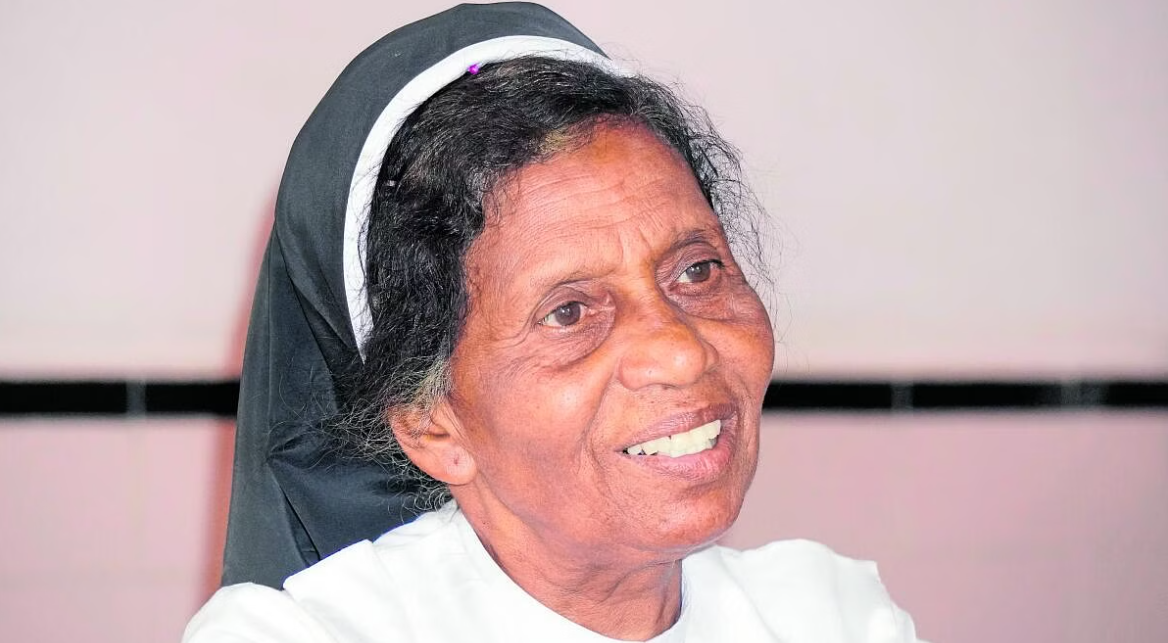Shobhana came to work at Nirmala Hospital in Bhadravati and started nursing the rural and poor in her spare time. At this time, Tonka stopped to educate the children of the laborers there.
That was the mid-1980s. The siren sound of VISL and MPM factories gave Bhadravati the title of ‘Industry City’. Thus, a large number of migrant workers came here from different parts of the country, especially from Tamil Nadu, and struggled to make a living.
All of them were settled in huts in the name of ‘camp’ around the nearby villages of Karehalli, Nirmalpur, Haralihalli, Bilaki, Veerapur, Siddhapur, Chatpat Nagar, Kudligere, not only Bhadravati.
All of them, who were not worthy of poverty, had to work for that day’s rice. The wages earned in the evening after working hard all day were like going home to the men. The wages of the girls were equal to the household expenses. Similarly, education for children was ‘not mandatory’. If the earned money was spent on various addictions including alcoholism, the little children used to work in the houses of the farmers of the neighboring villages to look after the cattle for the household expenses and to pay off the debts incurred by the father. That too for a salary of ₹60 per annum.
At this time, Sister Shobhana came to Bhadravati from far away Ernakulam in Kerala. Shobhana came to work at Nirmala Hospital, which has been run by St. Charles Baromiya Institute since 1954 in Bhadravati, and started nursing the rural and poor in her spare time. During this time, he saw the life of the laborers there closely. Tonka worked hard to educate his children.
He used to go door to door and convince the parents. They paid the advance money they had received from the local farmers, paid their wages, brought the children back and started enrolling them in the nearby government school. They encouraged those children by getting clothes, books and learning materials from the schools where the children of the rich were studying in Bhadravati. However, within a few days, those children would leave school again due to the poverty situation at home and return to slavery. Behind it there was also the insistence of the parents. Shobhana, who was trying to convince the parents again and again by going to the houses, allowed the children to continue their studies by enrolling them in hostels in distant towns instead of near the town. As a result, more than 170 children are now not only in government jobs but also in the private sector and have built a secure life.
Strength of Women Empowerment Self Help Societies
Most of the men from laborer’s families are Sarai, O.C. He was a slave to vices like gambling. To improve the economic situation of such houses, Sister Shobhana organized the daughters of those families,
formed and registered Streeshakti self-help societies. He was encouraged to take up self-employment by providing assistance and training from various government departments. As a result, girls got involved in dairy farming, sheep rearing, tailoring, food preparation, handicrafts. He encouraged women by giving them sewing machines. As a result of Shobhana’s insistence, 240 self-help societies are functioning across Bhadravati taluk, with more than 4,000 women members.
They have built houses and 140 toilets for 12 families in the taluk under the housing scheme by getting financial help from donors. Married 15 young women from poor families. A free ashram has been arranged to cure alcohol addiction and at a time 30 people are being sheltered there. Every month training, workshop and craft making training program is being conducted for illiterate women in rural areas to learn about banking business.
Sister Shobhana hails from a farming family in Kerala. Father Varghese Chacko, mother Yelli Chacko. There are two brothers and sisters. Beginning her primary education at St. Little Teresa’s School, Ernakulam, she joined the St. Charles Borromeo Institute as a nun in 1971. After completing a three-year diploma course in social work, he came to Bangalore in 1982 and completed his BSW degree. She came to Bhadravati in 1986 and was selected as the Director of Social Services in 1987. From there, his service work took off.
Sister Shobhana has been visiting the villages of Bhadravati taluk on foot and bicycle in her three and a half decades of social service. They are also loved by rural people. Locals call Shobhana ‘Teresamma’ and show their love to her. Like Elemare Kaya, she is involved in this ‘Teresamma’ (Sister Shobhana) Kayaka, without emphasizing on any promotion or honour.

